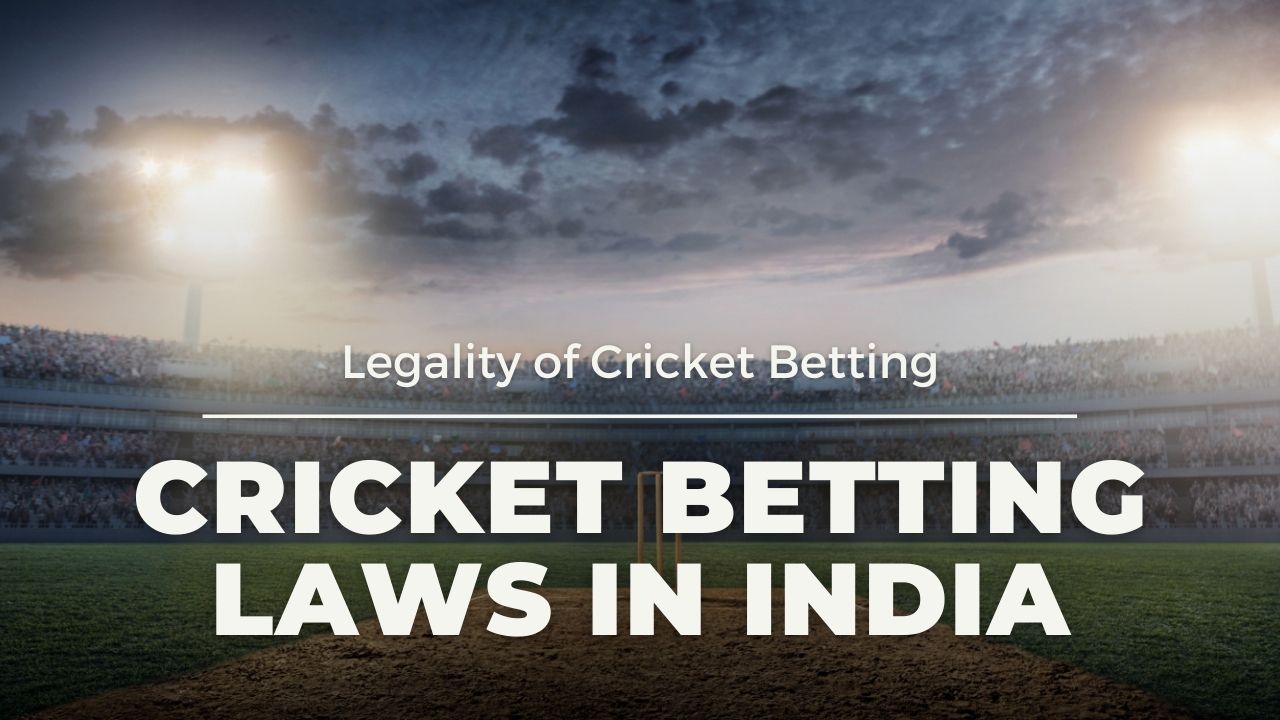India’s most popular and controversial sport is cricket. Residents here have boundless love for cricket because the sport is somehow linked to their emotions. However, the sport has been a victim of several disputes. One of the biggest controversies is regarding the cricket betting laws in India.
Cricket betting isn’t just a matter of luck but it depends on the individual player’s skills too. That may be the reason that the government doesn’t take strict actions against cricket betting.
Currently, the Indian Government hasn’t put forth any laws devoted to cricket betting. Moreover, past decades have hardly seen any legal framework is formed.
Despite this, Indians love to gamble, especially in cricket. This is not just a statement but a fact.
According to the International Centre for Sports Security (ICSS) report, the Indian betting market is worth $130 billion presently. Indian Premier League (IPL) has overwhelmed the country. Due to IPL, the betting has gone all the way up.
Are there different Gambling Laws of different States?
Probably yes. The Seventh Schedule, List ll (state list) empowers the state government to make their specific laws of betting and gambling activities.
It clearly states that the Central Government can’t interfere in any of the state laws regarding gambling.
Until now, 13 Indian states have legalized lottery. While 2 states (Goa and Sikkim) have legalized other forms of gambling too.
In such a diverse country, we can only imagine the variances of cricket betting laws in India.
Central and State Legislations Regarding Cricket Betting Laws in India
1. Till 1947, there was a single act ‘Public Gambling Act’ to handle betting and gambling activities.
Then, the 7th schedule of the Indian Constitution granted power to the State Governments.
2. Post-Independence, most states have enacted their laws related to gambling and betting.
Despite, the State Laws are based on the Central Legislation, i.e., Public Gambling Act, 1867.
Some of the state laws are mentioned below.
- The Public Gambling Act, 1867
- Payment and Settlement Act, 2007
- Assam Gaming and Betting Act, 1970
- Bombay Prevention of Gambling Act, 1887
- Goa, Daman and Diu Public Gambling Act, 1976
- Karnataka Police Act, 1963
- Madhya Pradesh (C.P.) Public Gambling Act,1867
- Madhya Bharat Gambling Act, 1949
- Orissa Prevention of Gambling Act, 1955
- Public Gambling Act, 1867 Constitution of India, Seventh Schedule, List II, Entry No. 34
- Punjab Public Gambling Act, 1867
- Sikkim Online Gaming (Regulation) Act, 2008
- Tamil Nadu City Police Gaming Rules, 1949
- Tamil Nadu Gaming Act, 1930
- The Andhra Pradesh Gaming Act, 1974
- The Andhra Pradesh Gaming Rules, 1976
And many more.
Some of them are briefly explained below:
The Public Gambling Act, 1867
The Public Gambling Act makes gambling in India a ‘grey’ legality. So cricket betting laws in India are often confusing. Britishers enacted this law during their reign. Additionally, the law is 145years old.
The law covers illegal activities as an offense.
- Operating a gambling house.
- Assisting in the operation of a gambling house.
- Visiting a gambling house (whether gambling or not).
- Financial gambling.
- Possession of gambling devices.
The Public Gambling Act clearly states, “nothing in this Act shall apply to games of mere skill wherever played” which means, in absence of other laws against them, wagering on games of skill is legal. The competitions where success depends on a substantial degree of skill are not “gambling” and despite there being an element of chance if a game is preponderantly a game of skill it would nevertheless be a game of “mere skill”.

Payment and Settlement Act, 2007
Madame President Pratibha Patil signed the Payment and Settlement Systems Act on 20th Dec 2007. The law came into effect on 12 Aug 2008.
This act authorized the Reserve Bank of India (RBI) to regulate all forms of e-payments. Importantly, Section 4 States:
- No person, other than the RBI, shall operate a payment system.
Exception: this can be done in accordance and under the approval of the RBI.
- Any Indian Bank with less than 51% of the equity requires RBI approval to operate.
- RBI has the power to look over all aspects of payment processing in India.
- It has access to all financial and customer data upon request, without prior notice
- RBI has the right to make policies almost on demand (abiding by the law)
The RBI has exercised the last point multiple times which caused the failure of top MNCs in India.
This is what caused PayPal to fail in India including Neteller and EntroPay.
Information Technology Act, 2000
The Gazette of India published the Information Technology (guidelines) Rules, on 14th April 2011. The legal document was issued under the authority of the IT Act, 2000.
Furthermore, the Act instructs Internet Service Providers (ISPs) and website hosts, to block access to certain websites and contents. This includes vulgar, illegal, pornographic, etc, content.
Moreover, the addition of gambling to the IT Act, 2000 is still controversial. Again, several State Governments have legalized sports betting and casino gambling.
Even the CEO (Mr. Haroon Lorgat) of the International Cricket Council (ICC) has urged to make cricket betting sites legal. He believed it to be the best way to prevent corruption and match-fixing in cricket.
However, the Government doesn’t agree with the CEO and is taking all actions to suppress the issue.
Currently, the cricket betting laws in India state gambling and betting to be illegal here. But there are expectations like horse racing, lottery, and rummy (paplu).
The government’s policies don’t seem to support gambling and betting activities. Besides, a time will come when fully legal gambling will step into the country.
Online Cricket Betting at its Peak
The brick and mortar casino has fallen behind and Indian punters are heavily visiting online cricket betting websites. Over time, the cricket betting scene has changed as well.
Noe, Indian punters have plenty of options out there in the cricket betting platform. Moreover, several UK-based betting sites also allow Indian punters and accept INR.
Nevertheless, the operator of these betting sites has optimized their sites more aligned to the needs of Indian customers. The sites have adapted:
- Easy signup process.
- Local payment methods such as UPI and Net Banking.
- 24/7 customer support in multiple languages.
- Wide variety of sports betting to choose from.
Future of Online Cricket Betting in India
Currently, many offshore companies are taking full advantage of the Indian Government’s legalizes sports betting. The ongoing competition between bookmakers will attract new customers.
Additionally, there will be offers and promotions throughout the platform. However, the condition of cricket betting is uncertain as of now.
Due to the increasing use of mobile phones, bookmakers will emphasize more on their mobile apps. This will make cricket betting much easier than before. And hopefully, people can find some relaxation in the cricket betting laws in India.
Besides, if you’re betting online, then make sure that the bookmaker has an authorized license. This is a guarantee of the safety of your data online.

